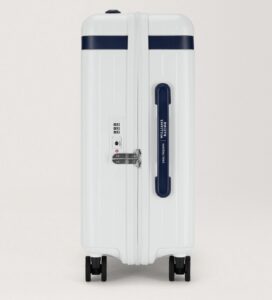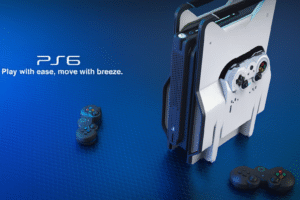



Mercedes-Benz has long been synonymous with luxury, innovation, and engineering excellence. But as the automotive industry evolves, so does the way brands connect with consumers. In 2025, Mercedes is poised to outsell other car manufacturers not just because of their cutting-edge vehicles, but because they are redefining the car-buying experience itself.
A quintessential example of this transformation is their new experiential pop-up lounge in the One Bangkok mall. Here, customers can sip on artisanal coffees and signature cocktails while immersing themselves in an environment that seamlessly blends style, comfort, and technology. This shift from traditional showrooms to lifestyle-driven spaces represents a fundamental change in how luxury cars are marketed and sold.
The Evolution of the Automotive Buying Experience
For decades, the car-buying experience has remained relatively unchanged—customers visit dealerships, interact with salespeople, and negotiate prices in an environment that often feels high-pressure and transactional. However, the way people engage with brands has shifted dramatically in recent years. Modern consumers crave meaningful experiences, personalized service, and a sense of connection with the brands they choose. Mercedes-Benz has recognized this shift and responded by reimagining the traditional showroom model.
The pop-up lounge in One Bangkok mall is a prime example of this evolution. It’s not just a place to look at cars; it’s an immersive experience where potential buyers can explore Mercedes vehicles in a relaxed, social setting. Partnering with MARS Coffee and Thonburi Phanich Co., Mercedes has created a space where customers can enjoy high-end beverages while engaging with the brand on their terms—without the pressure of a typical dealership.
This innovative approach has several key advantages:
Creating Emotional Connections:
By offering an inviting and engaging environment, Mercedes fosters an emotional connection with customers. People remember how they felt in a space more than the specifics of a sales pitch. By focusing on comfort and atmosphere, Mercedes makes a lasting impression.
Engaging New Audiences:
Traditional dealerships often appeal to those already in the market for a car, but lifestyle-oriented spaces attract a broader audience. Young professionals, social influencers, and even casual shoppers are drawn to such environments, increasing brand exposure and potential future sales.
Brand Differentiation:
In an increasingly competitive automotive market, standing out is essential. Mercedes’ lounge concept sets them apart from competitors who are still relying on outdated showroom models, reinforcing their reputation as pioneers of luxury and innovation.
The Power of Experiential Marketing in the Automotive Industry
Experiential marketing has become a crucial tool for luxury brands looking to deepen customer engagement. Unlike traditional advertising, which often feels one-sided, experiential marketing immerses consumers in a brand’s world, allowing them to interact with products in a tangible and meaningful way.
Mercedes’ approach at One Bangkok mall is a textbook example of how experiential marketing can drive sales and brand loyalty. Here’s why it works:
Tactile Engagement:
Consumers today prefer to touch, feel, and experience products before making a purchase. In the lounge, customers can sit in Mercedes vehicles, explore the features, and visualize themselves driving the car—all while enjoying a premium lifestyle experience.
Word-of-Mouth and Social Sharing:
Unique experiences are more likely to be shared on social media, leading to organic marketing and greater brand reach. Customers who visit the lounge are likely to share their experiences online, generating buzz and attracting more visitors.
Exclusivity and Prestige:
By offering exclusive events and curated experiences, Mercedes enhances its brand’s prestige. Customers feel privileged to be part of something special, which reinforces their loyalty and increases the likelihood of a purchase.
Building Long-Term Customer Relationships
In the luxury automotive market, building long-term relationships with customers is just as important as making an immediate sale. Mercedes understands this and has integrated a no-rush, no-pressure approach into their new showroom concept.
Instead of pushing potential buyers into making quick decisions, the lounge offers them an opportunity to explore at their own pace. This strategy is effective because:
It Builds Trust
When customers feel they are in control of their buying journey, they are more likely to trust the brand and ultimately make a purchase.
It Encourages Repeat Visits
Unlike a traditional showroom visit, which may feel like a one-time event, an inviting lounge space encourages customers to return—whether to enjoy a coffee, attend an event, or simply experience the luxury environment.
It Strengthens Brand Loyalty:
Providing value beyond the sale—whether through curated experiences, social gatherings, or personalized interactions—keeps Mercedes top-of-mind for customers when they are ready to make a purchase.
The Role of Exclusivity and Customization in Sales Growth
Luxury customers seek exclusivity and personalization in their purchases, and Mercedes’ new approach delivers both. The lounge concept allows the brand to showcase its vehicles in a highly curated environment, offering bespoke experiences tailored to individual preferences.
Through personalized consultations, interactive digital displays, and immersive test drives, customers can customize their Mercedes experience to fit their lifestyles. This bespoke approach enhances the sense of exclusivity and encourages customers to invest in higher-end models and additional features.
Competing in the Experience Economy
Today’s consumers value experiences as much as—if not more than—physical products. The experience economy has reshaped industries ranging from hospitality to retail, and the automotive sector is no exception.
By investing in experiential retail spaces, Mercedes positions itself as more than just a car manufacturer; it becomes a lifestyle brand. This strategic move resonates strongly with younger generations who prioritize unique experiences and emotional engagement over traditional buying methods.
Other automakers will likely follow suit, but Mercedes’ early adoption of this model gives them a first-mover advantage. Their ability to blend luxury, innovation, and lifestyle in a seamless manner puts them in a prime position to lead the market in 2025.
Challenges and Considerations
While the immersive lounge concept offers numerous benefits, it also presents challenges. Mercedes must ensure that these spaces remain fresh, relevant, and engaging over time. Additionally, expanding the concept globally while maintaining a high level of personalization and exclusivity will require careful planning and execution.
Another consideration is the balance between digital and physical experiences. As online car shopping grows, Mercedes must integrate digital touchpoints into their experiential spaces to provide a seamless omnichannel experience.
The Takeaway: Engaging Spaces Will Drive Sales Success
Mercedes-Benz’s pop-up lounge in One Bangkok mall is more than just a showroom; it’s a glimpse into the future of automotive retail. By focusing on creating engaging, welcoming, and memorable spaces, the brand is redefining how customers interact with luxury cars.
The key lesson here is that transactional relationships no longer suffice—brands that focus on building meaningful, immersive experiences will win customer loyalty and drive sales growth. Mercedes’ innovative approach aligns perfectly with evolving consumer expectations and sets the stage for their continued success in 2025 and beyond.
Final Thoughts
In a rapidly changing automotive landscape, Mercedes-Benz has demonstrated a clear understanding of what modern consumers want—an experience, not just a product. Their immersive pop-up lounges offer a refreshing alternative to the traditional dealership model, creating an inviting space where customers can explore, engage, and connect with the brand on their own terms.
As competitors scramble to catch up, Mercedes’ forward-thinking approach positions them as a leader in the luxury car market. With a strong focus on experiential retail, personalization, and customer connection, there’s little doubt that Mercedes will sell more cars in 2025 than any other brand.
By embracing innovation and prioritizing the customer experience, Mercedes-Benz is not just selling cars—they’re shaping the future of automotive retail.
No comments yet.








